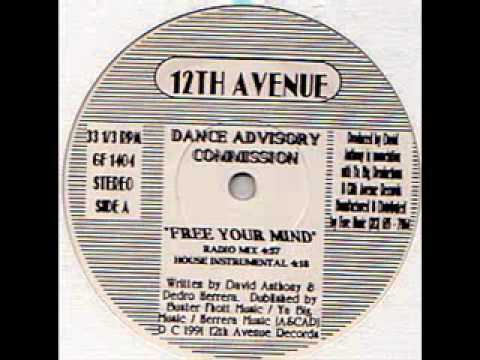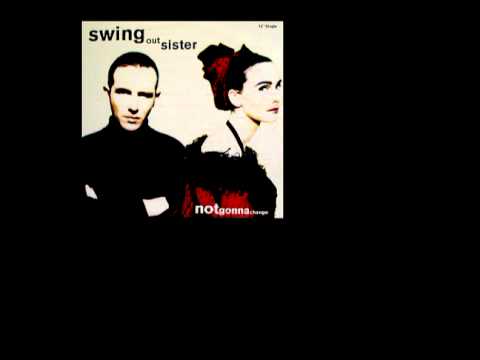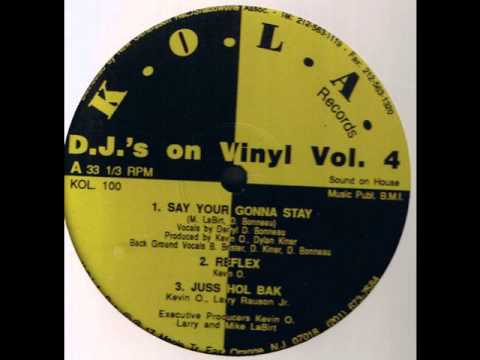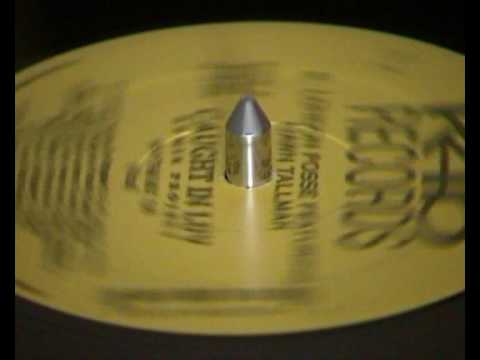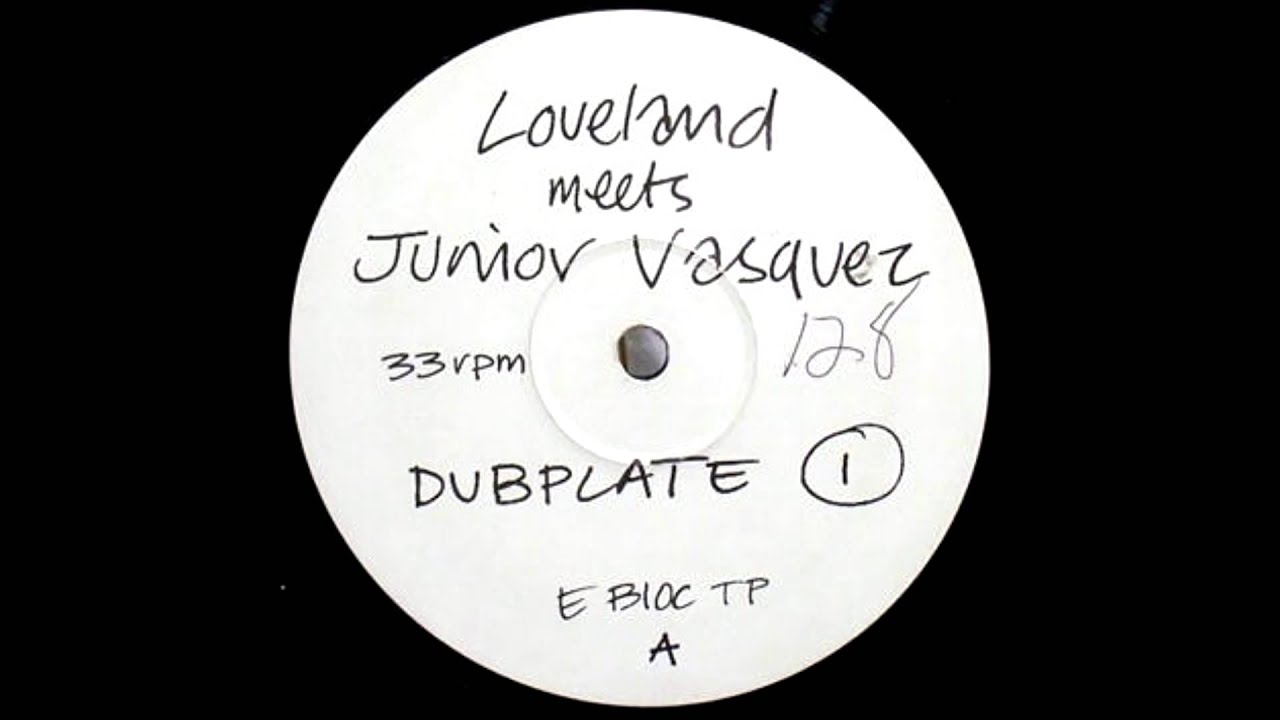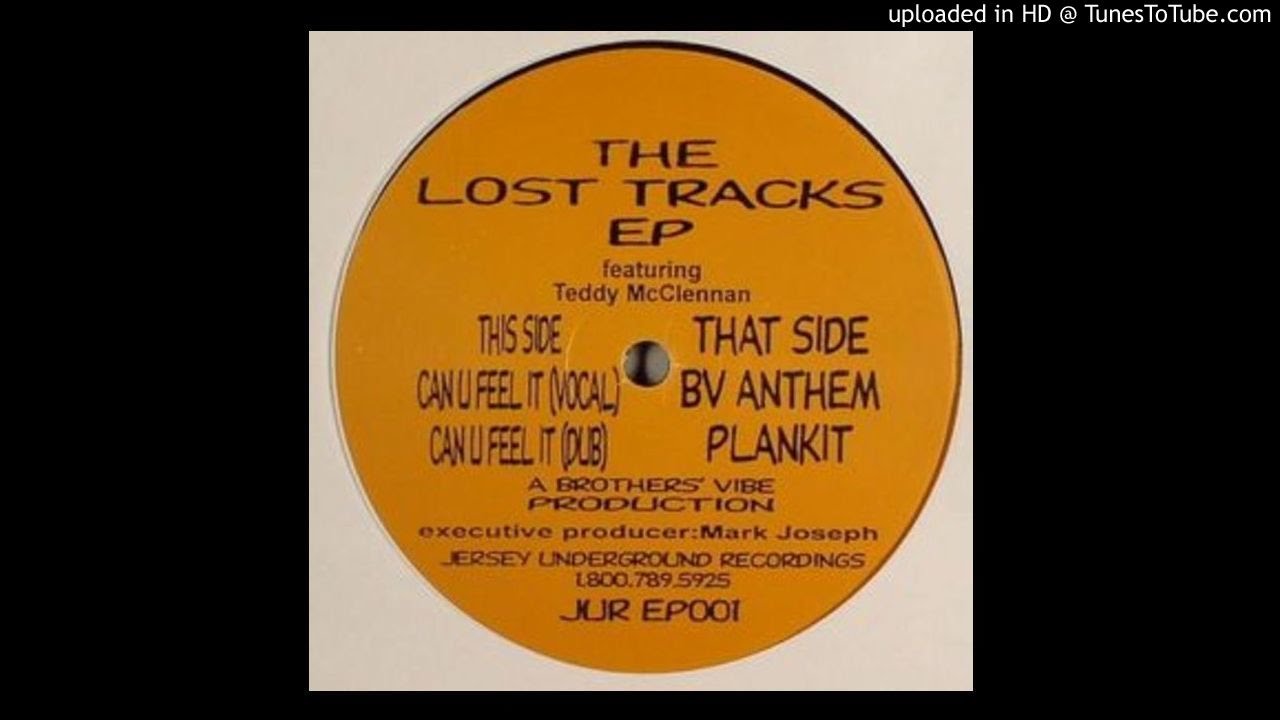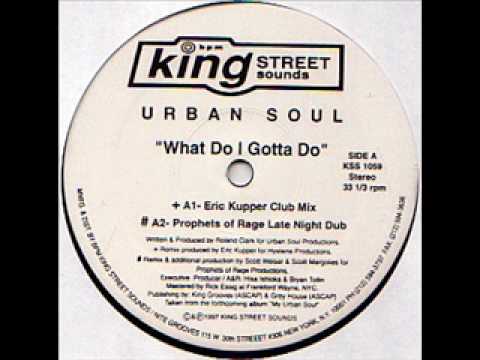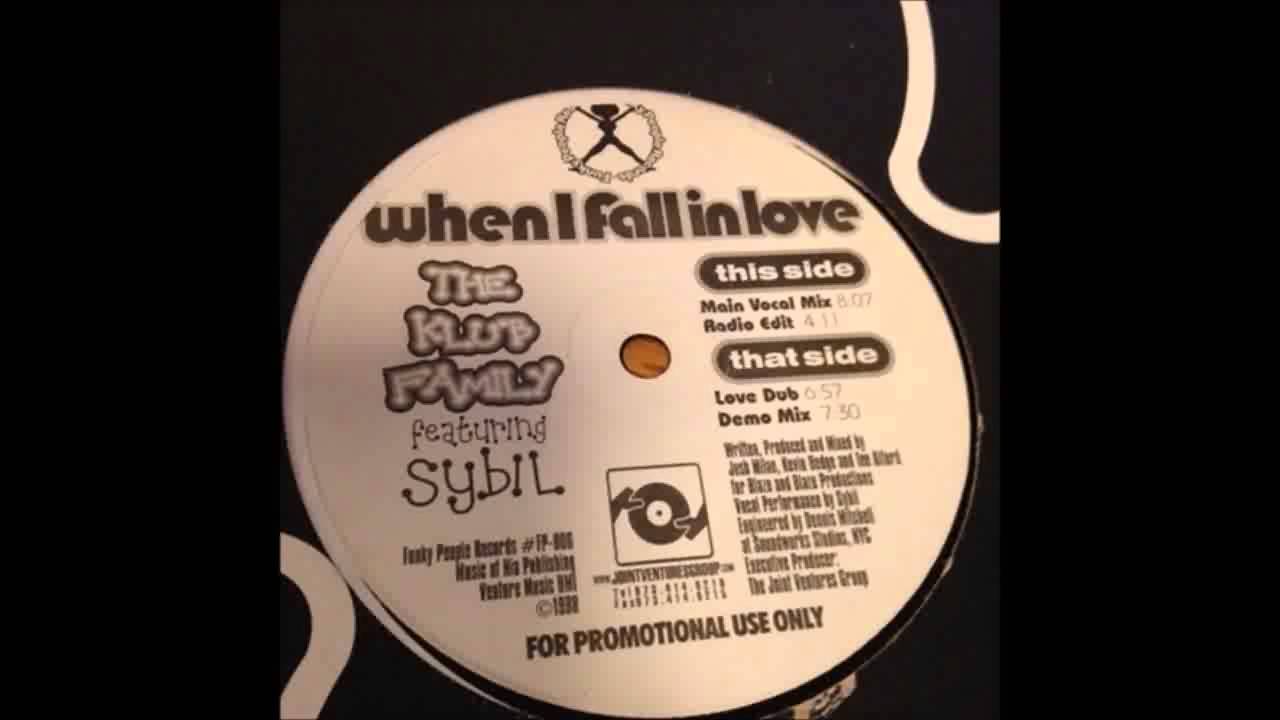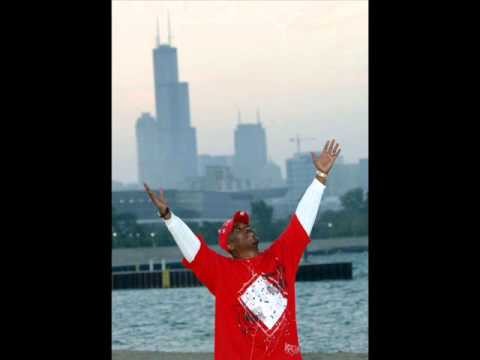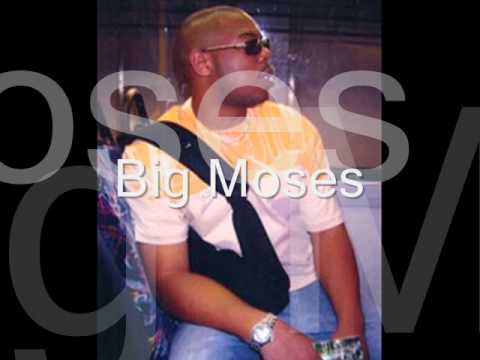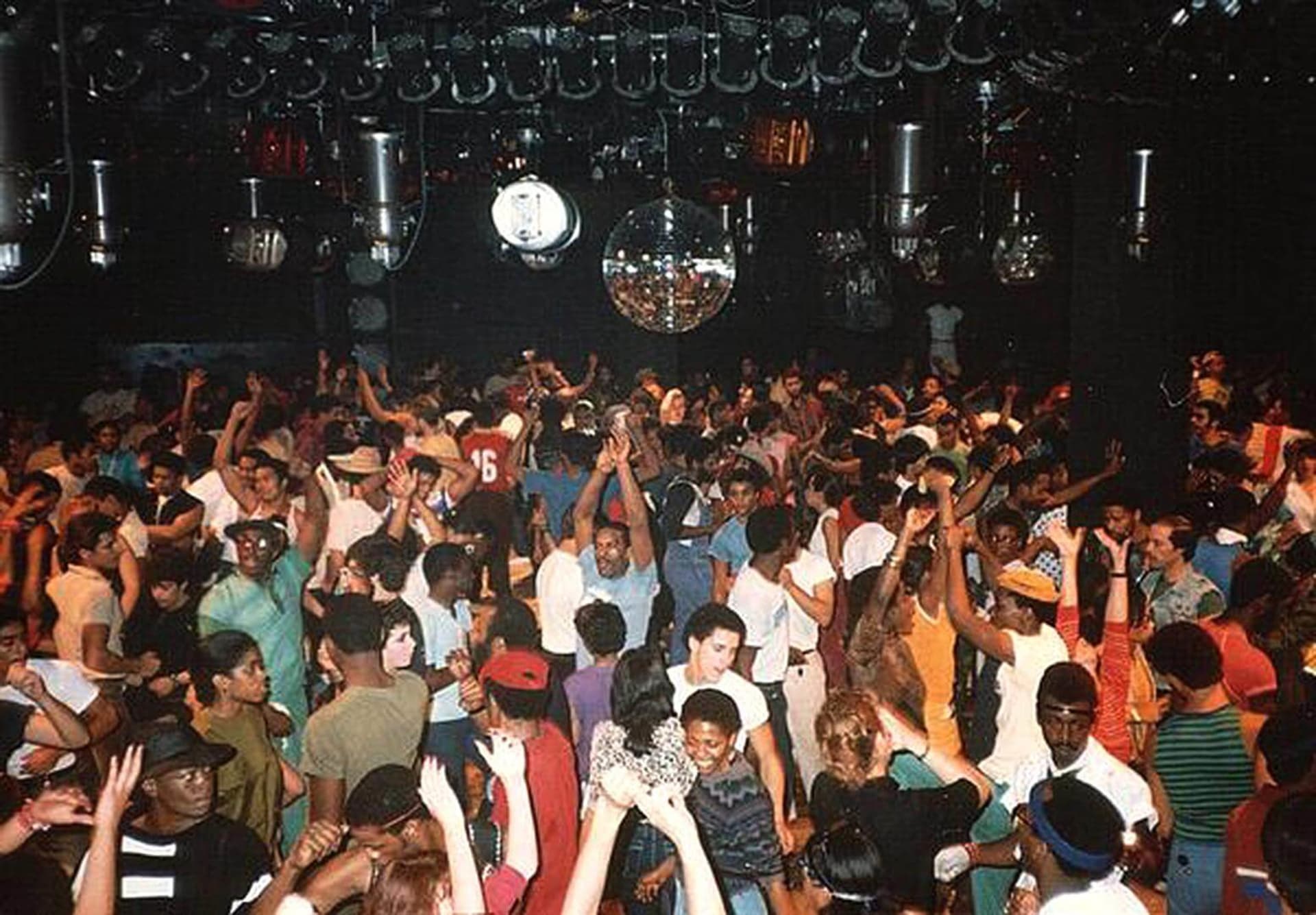
10 Garage House Gems Every Dancer And DJ Should Know
The basic elements of house have been the same since its dawn in the mid-1980s: a vocalist and an instrumental. Of course, that isn’t a surprising combination considering that the genre continued the traditions soul and disco started in the mid-’70s. Well-regarded DJ, Hard Wax records staple and dance music expert Finn Johannsen has published an ongoing chronological mix series consisting of his favorite vocal house records, which makes him a solid source for information about garage house, a style that takes its name from the seminal nightclubs Paradise Garage and the Warehouse. Here, he shares a few overlooked gems to compile an expert’s guide to the sub-genre. From here on out, the text you’ll see is all him.
Dance Advisory Commission, “Free Your Mind (Yesterday’s Mix)” (12th Avenue Records 1991)
This is the sole release on the 12th Avenue imprint, which was operated by Ben “Cozmo D” Cenac. “Free Your Mind (Yesterday’s Mix)” was produced by David Anthony, who revived it for a release on Emotive the following year. But the original record has the best versions: it provides eternal self-liberation-on-the-floor imperatives carried by a subtle hip-house aftermath breakbeat that’s effortlessly swinging.
Swing Out Sister, “Notgonnachange (Mix Of Drama)” (Fontana 1992)
The importance of Def Mix productions in garage house history cannot be overestimated. 1992 probably saw more vocal-led house releases than any other, as around that time the majors employed an increasing number of club DJs and producers to sprinkle some nocturnal stardust and dance floor credentials on their chart-bound artists. Here you have the most consistent remixer of the genre, Frankie Knuckles, turning UK soulsters Swing Out Sister into a show-stopping symphony of baroque proportions. His way of arranging pianos and strings into lush elegance is really distinct and totally timeless.
Darryl D’Bonneau, “Say You’re Gonna Stay” (New Generation 1992)
“Say You’re Gonna Stay” is a masterpiece hidden on a mini-compilation that was released by a label that’s supposedly affiliated with New Generation, the home of most of Larry P. Rauson’s weird and wonderful productions. The track had a second life on Jellybean in 1995, despite the fact that the versions contained therein were way less intense than the originals. The interaction of main and background vocals here is pure perfection—well, the vocal performance is, anyway. The song is an eight-minute plea for forgiveness that’s beyond par. I wouldn’t believe you if you told me that she didn’t forgive him after hearing this.
K. London Posse Featuring Dawn Tallman, “Caught In Luv (Rhythm Mix Vocal)” (K4B Records 1994)
From 1993 on, garage house was played to increasingly bigger crowds, and the sweet melodies of former years were often replaced by a gospel urgency and heavier sounds. Producers like Masters At Work, Mood II Swing or Louie “Balo” Guzman showed the way, and many others followed. One of those was Kingsley O., who released a string of high-quality records on his K4B label that paired diva delivery with considerably twisted dubs. Buying double copies to combine both to best effect became mandatory.
Loveland, “Hope (Never Give Up) (Junior’s Factory Vocal)” (Eastern Bloc Records 1994)
NYC’s Sound Factory was the temple of the new booming garage house sound, and Junior Vasquez was its adamant high priest. The rules and requirements he instituted for his floor are exemplified by this remix, which is one of many he did in those years. On this occasion, he rides on the ever-reliable Robin S template developed by Sweden’s finest remix team, Swemix and Stonebridge, but adds those tribal rhythms, rave stabs and roller-coaster structure. The vocals don’t serve much more purpose than barely holding it all together, but they’re still necessary.
Brothers’ Vibe Featuring Teddy McClennan, “Can U Feel It (Vocal)” (Jersey Underground 1996)
Here the Rodriguez brothers pay their dues to Larry Heard’s eternal classic of a very similar name. It may lack the original’s puzzling and blissful emotionality, but it manages to catch up as a deep, dark and dubbed-out companion. It kicks you—mesmerized and eyes closed—into realms you probably weren’t ready to enter. And once you’re there, you won’t care about ever getting out.
Urban Soul, “What Do I Gotta Do (Eric Kupper Club Mix)” (King Street Sounds 1997)
Roland Clark was an early voice of the New Jersey sound. Back in the very early ’90s, his shattered falsetto perfectly accompanied the dramatic melancholia of his productions. Here, Eric Kupper, man of many a thousand beautiful moments in house music history, manages to add further bittersweet intensity to the equation and a direct route to wailing with the best of them. If you think that most house songs are superficial and one-dimensional, you might find that you’ve been listening to the wrong ones.
The Klub Family, “When I Fall In Love (Main Vocal Mix)” (Funky People 1998)
Blaze cannot be praised enough for their considerable contributions to the house music canon. Few were as committed to the tradition of soul within the genre, and few could update said tradition with a sound so distinctively their own. Thus they were an exception when house came into being, and they remained an exception for the years to come. Sometime in between, they helped to pave the way to the more spiritual and conscious sound celebrated at NYC clubs such as The Shelter and Body & Soul, and then they ruled it. Never, ever write them off.
Loftis #V Featuring Lafe, “Dreamin’ (Joe Smooth Vocal Mix)” (Loft Records 2002)
After a productive but rather short period on DJ International in the early ’90s, Craig S. Loftis reappeared with this stunning record (the Blaze-inspired “You Are All I Need” from one year later is also well worth tracking down). At that time, Joe Smooth had vanished from my radar as well, but even if he had never made another track after this one, I’d be eternally grateful. The way this track maintains a floating excellence over such a monolithic, funked-up groove is just incredible. And when it comes to the dub version, you better watch out.
Big Moses, “Deep Inside (Vocal)” (Big Moe Records 2004)
Moise Laporte is best known for his sublime “Brighter Days” from 1996, but I cannot recommend this record enough either. I really despise a lot of “soulful garage” for its bland, pseudo-jazz-drenched noodlings, but here, all wrong musicianship temptations are kept in check for a well-balanced, sophisticated groover straight for the modern soul floor. May the girls and boys keep on swinging, and may the faith be kept.
Cover photo via Emaze.
Published May 31, 2016.

